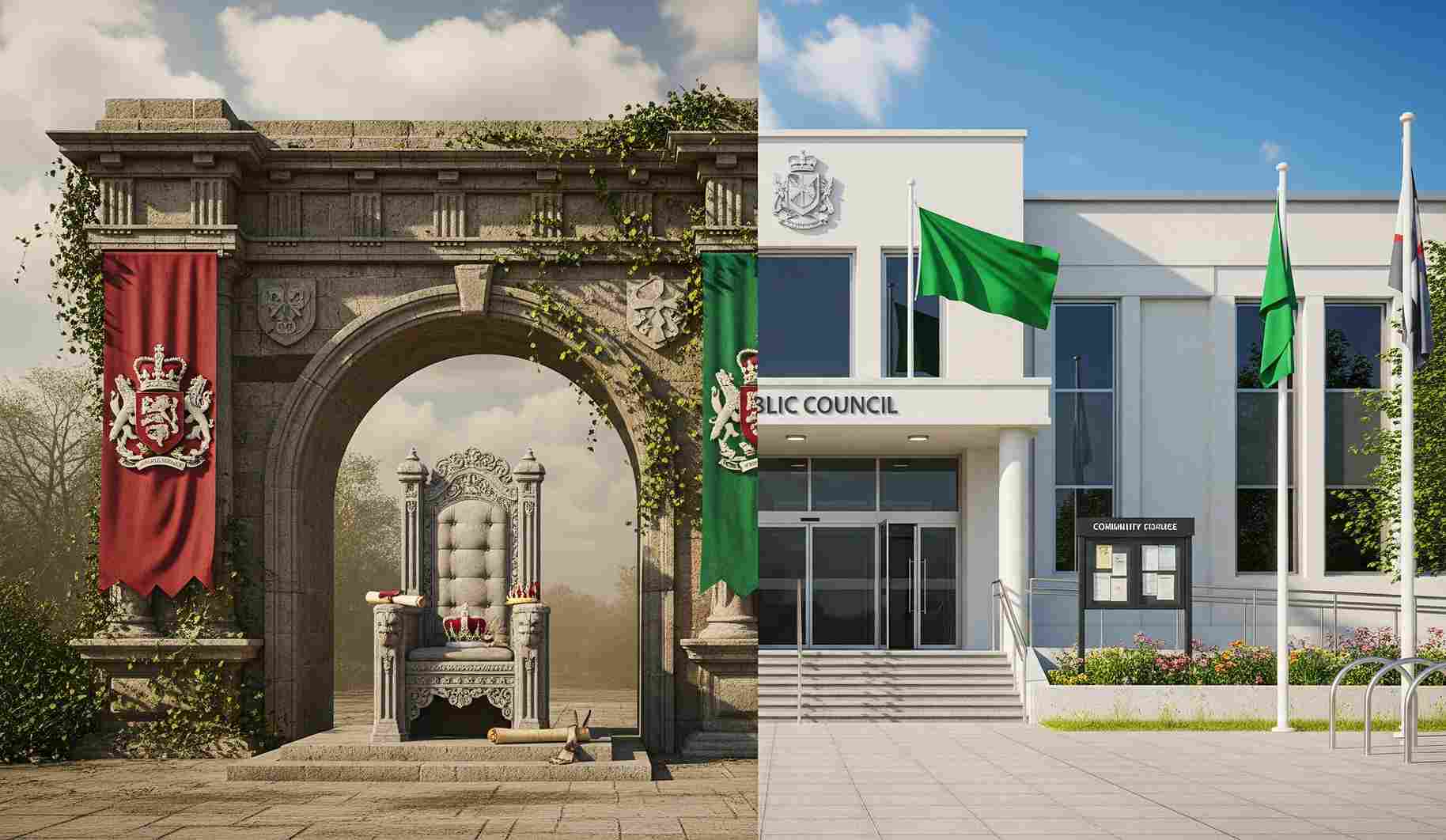The Opposite of Monarchical: Exploring Alternatives to Monarchy
Hey friends! Have you ever wondered what your country’s government would look like if it wasn’t ruled by a king or queen? When we hear the word monarchical, we think of kings, queens, monarchs—those regal rulers who hold power through heredity. But I want to ask you this: what’s the opposite of a monarchy? And what are the real alternatives if your country isn’t ruled by a royal family?
Today, we’ll dig deep into this topic, exploring different forms of government that stand opposed to monarchy. We’ll go beyond just the simple definition and give you a clear understanding, complete with real-world examples. So, let’s get started!
What Does “Opposite of Monarchical” Mean?
First off, let’s clarify what we’re talking about. Monarchical refers to a system where a monarch—such as a king or queen—serves as the head of state. The opposite of a monarchy, therefore, involves systems where no singular regal figure holds unchallenged power or hereditary authority.
In essence, the opposite could be a government that:
- Is not based on hereditary rule
- Has leaders chosen through democratic means
- Shares authority among multiple individuals or groups
Now, let me guide you through some major types of governments that serve as the opposite of monarchical systems.
Key Alternatives to Monarchy
Let’s explore the most common and significant alternatives.
1. Republic
Definition:
A republic is a form of government where the country’s head of state is elected rather than inherited. Power resides with the people or their representatives.
Key Features:
- Elected Presidents or Leaders
- No heredity rule
- Citizens have voting rights
- Leaders serve fixed terms
Example:
The United States, France, India — these are all republics, where leaders like the President are elected by citizens.
2. Democracy (Direct & Representative)
Definition:
Democracy is a system where the power ultimately resides with the people. It can be direct (people vote on laws themselves) or indirect (through elected representatives).
Key Features:
- Free, fair elections
- Equal voting rights
- Absence of hereditary monarchy
Example:
Switzerland practices direct democracy with referendums, whereas the UK uses a parliamentary democracy.
3. Oligarchy
Definition:
An oligarchy is a government ruled by a small group of powerful people, often wealthy or influential.
Key Features:
- Power concentrated among a few elites
- Not based on heredity but often economic or social status
- Can exist within republics or democracies
Example:
Historically, ancient Sparta had elements of oligarchy, and modern-day Russia has been described by some as oligarchic.
4. Anarchy
Definition:
Anarchy is a state of society without any government or formal leadership.
Key Features:
- No centralized authority
- Based on voluntary cooperation
- Generally unstable or temporary
Example:
Certain regions during civil conflicts or revolts — though not a sustainable or desirable long-term system.
Comparing the Systems: A Detailed Table
| Feature | Monarchy | Republic | Democracy | Oligarchy | Anarchy |
|---|---|---|---|---|---|
| Leadership Source | Hereditary (royal family) | Elected or appointed | Voting by citizens | Small ruling elite | No leadership |
| Power Concentration | Concentrated in monarch | Distributed among elected leaders | Power reflects the people’s choice | Concentrated in few elites | No centralized power |
| Stability | Usually stable, long-term | Stable, depends on governance | Varies; can be stable or chaotic | Often unstable or controlled | Unstable, unpredictable |
| Example Countries | UK, Saudi Arabia | USA, Germany | India, Australia | Russia (oligarchic elements) | Not typically institutionalized |
Why Is Understanding These Systems Important?
Knowing the opposite of monarchical systems helps us appreciate how countries govern themselves and choose leaders. It gives us a clearer picture of democracy’s importance, the dangers of unchecked power, and why some nations prefer one system over another.
Main Takeaway:
Different government types shape a country’s stability, rights, and freedoms. Recognizing whether a government is a monarchy or an alternative helps us understand their history and policies better.
Tips for Success in Understanding Government Systems
- Compare with real-world examples: This helps you grasp abstract concepts.
- Use visual aids: Charts, tables, or diagrams make complex info easier.
- Stay updated: Political systems evolve; staying current helps in understanding current governments.
- Practice active learning: Write summaries, ask questions, or discuss with peers.
Common Mistakes and How to Avoid Them
- Confusing oligarchy with monarchy: Remember, oligarchy is rule by a small group, not by hereditary right.
- Assuming all democracies are identical: There are significant differences—direct vs. representative.
- Thinking anarchy is chaos: While they share similarities, some societies can organize themselves without a centralized authority.
- Overgeneralizing examples: Each country’s government is unique; contextual understanding is key.
Variations and Hybrid Systems
Many countries today have mixed systems:
- Constitutional Monarchy: Royal family exists but has limited powers (e.g., UK, Japan)
- Parliamentary Republic: Elected leadership with a ceremonial monarch (e.g., Sweden)
- Authoritarian Regimes: Not monarchical but still undemocratic (e.g., North Korea)
Understanding these nuances broadens your grasp of global governance.
Why Does It Matter?
Knowing the opposites of monarchy isn’t just academic. It influences how citizens engage in politics, defend their rights, and participate in decision-making processes. Plus, understanding different government systems helps us appreciate democracy’s role in protecting freedom and equality.
Practice Exercises to Weld Your Knowledge
1. Fill-in-the-blank:
The system where leaders are chosen through voting and power is not hereditary is called a __________.
2. Error correction:
Choose the sentence with an error and correct it:
“The king or queen governs directly in a republic.”
3. Identification:
Identify whether the following is a monarchy, republic, or democracy:
The President is elected every four years by citizens.
4. Sentence construction:
Construct a sentence explaining why an oligarchy can be unstable.
5. Category matching:
Match each system to its characteristic:
- System where power resides with a few elites – ________
- No government, relies on voluntary cooperation – ________
- Leaders elected by citizens – ________
Final Words
Understanding the opposite of monarchical systems is crucial for anyone interested in how nations operate. Whether it’s a republic, democracy, or something else, each system reflects different ideas of power, governance, and citizen participation. I hope this guide cleared up your questions and provided you with useful insights. Keep exploring, stay curious, and remember: the way countries are run impacts us all!
Until next time, keep learning about these fascinating political systems — freedom and knowledge go hand in hand!


